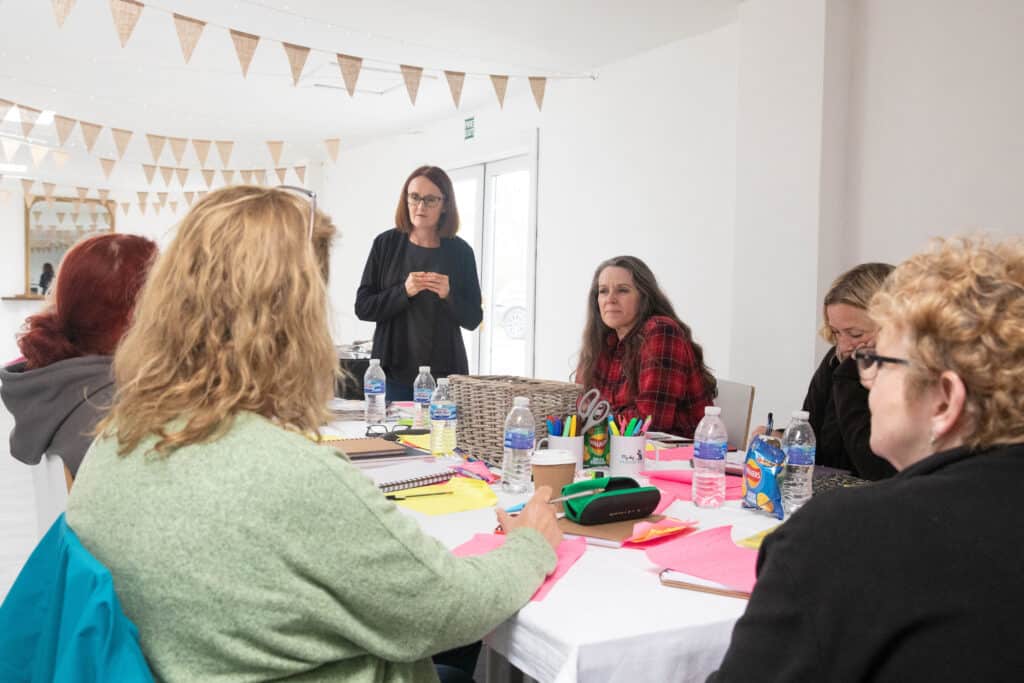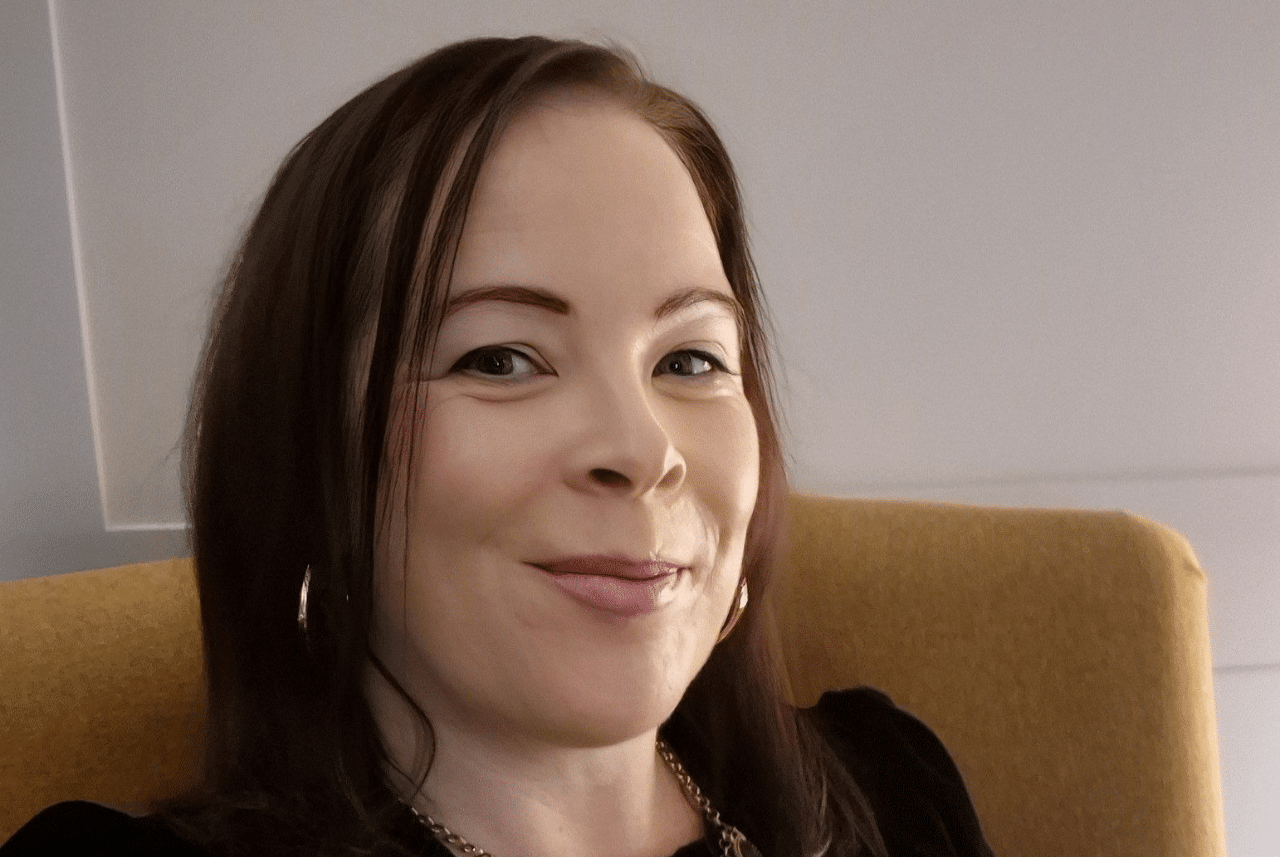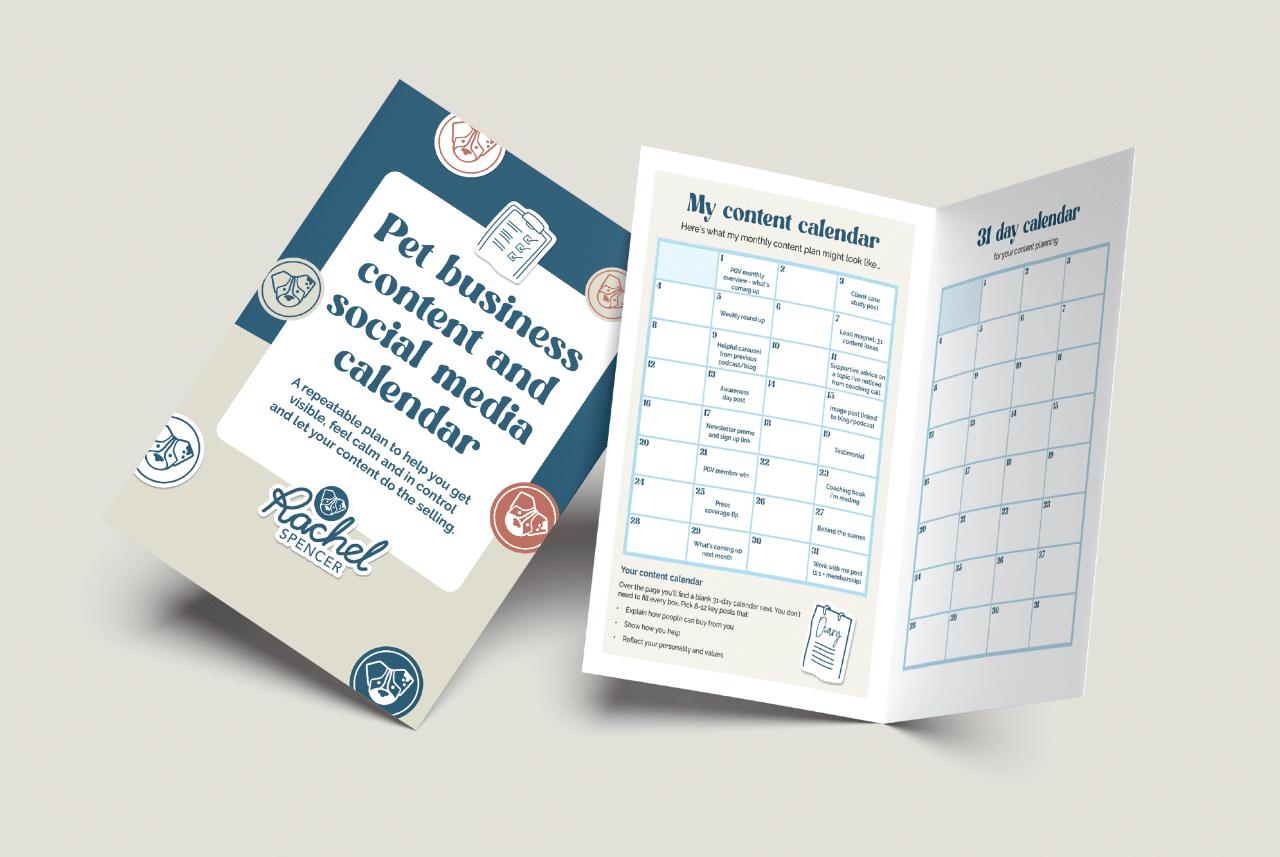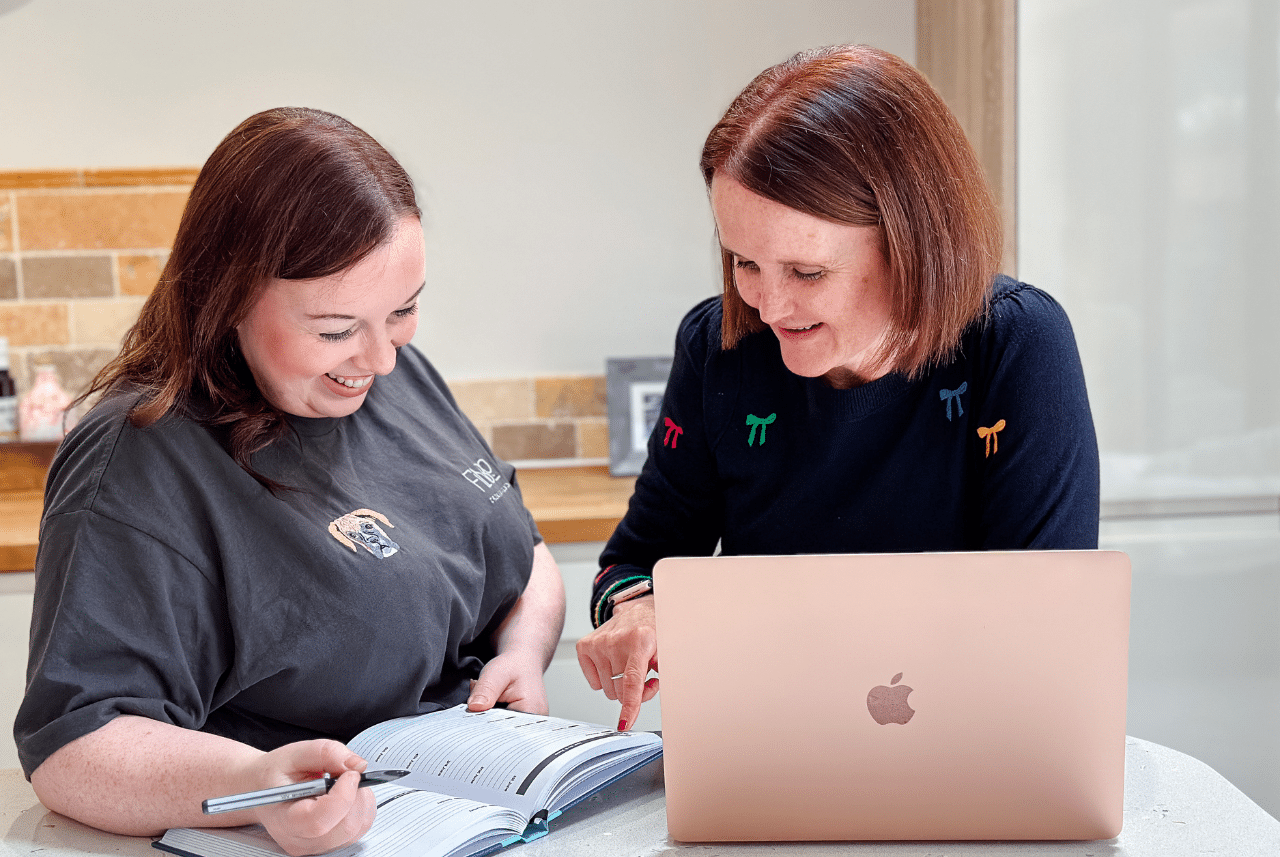Tomorrow marks 19 years since I left my job as a staff writer on the News of the World to go freelance.
On July 11th, 2006, I was 30, single, living in my old house in Warrington and paying the mortgage on my own.
I had no savings, no security – just a MacBook, a notepad, some pens, and a contact book full of journalists and editors I knew.
There was no social media, Facebook had just started but was only used by students in the States.
There was no email list, I had a one page website and I knew I wanted to make it work.
According to Clarify Capital, 80% of businesses don’t make it to 20 years.
So the fact I’m still going, still loving what I do (most days), and still helping people get visible in ways that feel good means a lot.
Now I’m 49, and over those years I’ve:
- Written for every newspaper in the UK
- Worked with most of the women’s magazines
- Been on the radio
- Started a pet blog
- Written a book
- Started a podcast
- Launched four websites
- Created four online courses and three memberships
- Trained as a coach
- Bought a holiday cottage
- Bought four houses and a flat
- Moved six times
- Had nine cars and two dogs
If someone had told me back in 2006 that one day I’d be running a dog-friendly holiday cottage alongside a coaching business and a podcast (another thing that didn’t exist then), I would’ve laughed in their face.
So I thought to celebrate 19 years I’d share 19 things I’ve learned.
1. Your business will always be evolving
When I started, I thought I’d write features for newspapers and magazines forever.
But the media changed, titles folded, and the budgets disappeared.
Freelance journalism was amazing in the first few years and I easily earned six figures but the business I have now is unrecognisable from where I started.
2. It’s okay to change direction
In 2018 I started working with small business owners and moved away from journalism, and it was something I’d wanted to do for years.
I’d put it off because I thought that with a background in the red tops, people would see me as grubby and not want to work with me.
But it was utter rubbish, no-one cared and if I hadn’t made that shift, I don’t think I’d have a business now.
3. It’s scary to do something new
Putting myself out there as someone who could help other business owners was terrifying – I nearly threw up the first time I shared a blog post on Facebook.
I worried what people would think and that they’d laugh and think ‘who does she think she is?’ and I know they did, but now I just think – let them.
4. If people can’t see you, how do they know you’re there?
I spent the first 12 years of self-employment hiding away and was too scared to be visible.
I didn’t talk about what I did publically. I’d shake while speaking in a networking meeting and it took me NINE years to go to one of those!
I’d pitch to editors via phone or email, but I never did anything online.
But if people don’t know you exist, how can they ever find you?
Starting my pet blog – a storytelling platform – led to the accidental business I have now and I’m so thankful I did it.
5. It’s okay to ask for help
I used to think asking for help was embarrassing and meant you didn’t know what you were doing.
Now I know that asking for help is a strength. You don’t have to make it harder than it needs to be.
6. Find someone who’s already walked the path
For me, that was Janet Murray, a journalist turned marketing expert.
She understood what it meant to go from journalism to building an online business and held my hand as my coach and mentor through the first two years.
It was a big investment, but I know that if I tried to do it on my own, I’d give up.
She helped me keep going when there were tricky times and I’m really thankful of her support.
7. Give yourself time to replace your income
It took me four years to match what I’d been earning as a journalist with my new online business.
We don’t talk enough about the time it takes to rebuild and grow and focus on the overnight successes.
8. Run towards the things that scare you
AI. Podcasting. Showing your face on Instagram. Whatever it is – try to get your head round it because the more you understand it, the less scary it is.
9. Be brave and try new things
Not everything you try will work out, but it will all teach you something.
A few years ago I created a course called the Be Bold Bootcamp.
I only ran it twice and it was all about helping people feel braver and has influenced so much of what I do now.
10. Get good at what you do and then get better
This line came from my podcast guest Jane Ardern. She said imposter syndrome can come from knowing that you don’t actually know that much!
This is what gave me the push I needed to sign up for ILM Level 7 in Coaching and Mentoring in 2024, which I passed in 2025, and has helped me hugely with believing in myself.
So keep learning, whether it’s books, podcasts, courses, workshops because this will give you the confidence to know you’re doing your best.

11. Do the things that feel difficult
Blogging, podcasting, and emailing your list take time, there’s a lot to get your head round, it can be fiddly and you don’t always see the results straight away.
But they build trust, connection and will serve you for years to come. I’ve had people join my programmes after reading a blog I wrote three years ago.
12. Work with people who share your values
Years ago, someone told me they were outraged I was charging to help people get press coverage.
She thought that it was wrong that I was charging people, even though one of my values is generosity and I provide so many resources for free.
Now I’m mindful that people who come to work with me know how I work and my values, and have a ‘break clause’ to cover us both for 1-1 in case we’re not a good fit.
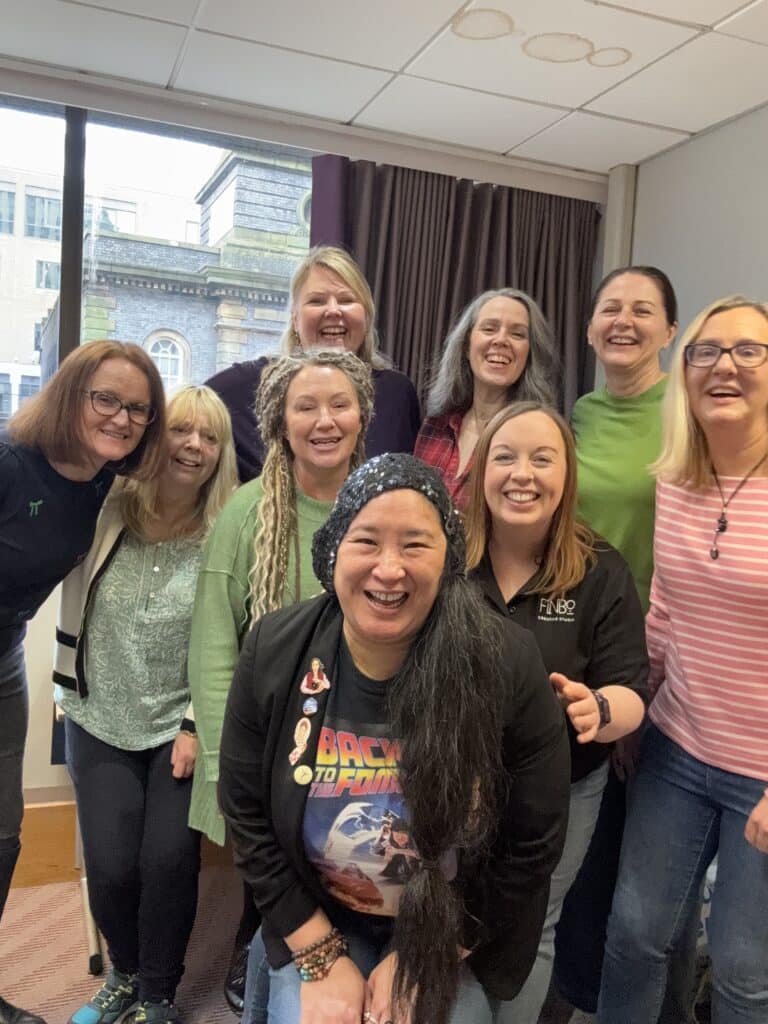
13. Life is a rollercoaster
In the wise words of Ronan Keating, and you’ve just got to ride it. Some days you’re screaming with exhhilaroin at the top of the rollercoaster.
Then everything comes crashing down and you just want to howl and you wonder if you can keep going. You’re not doing it wrong.
That’s just how things are and the good days do come back around.
14. Surround yourself with people who get it
Most of my friends are ‘normal people’ who have proper jobs and earn loads of money.
That’s why having online friends and business communities is important. As the saying goes, ‘no-one supports you like a social media friend you’ve never met.’
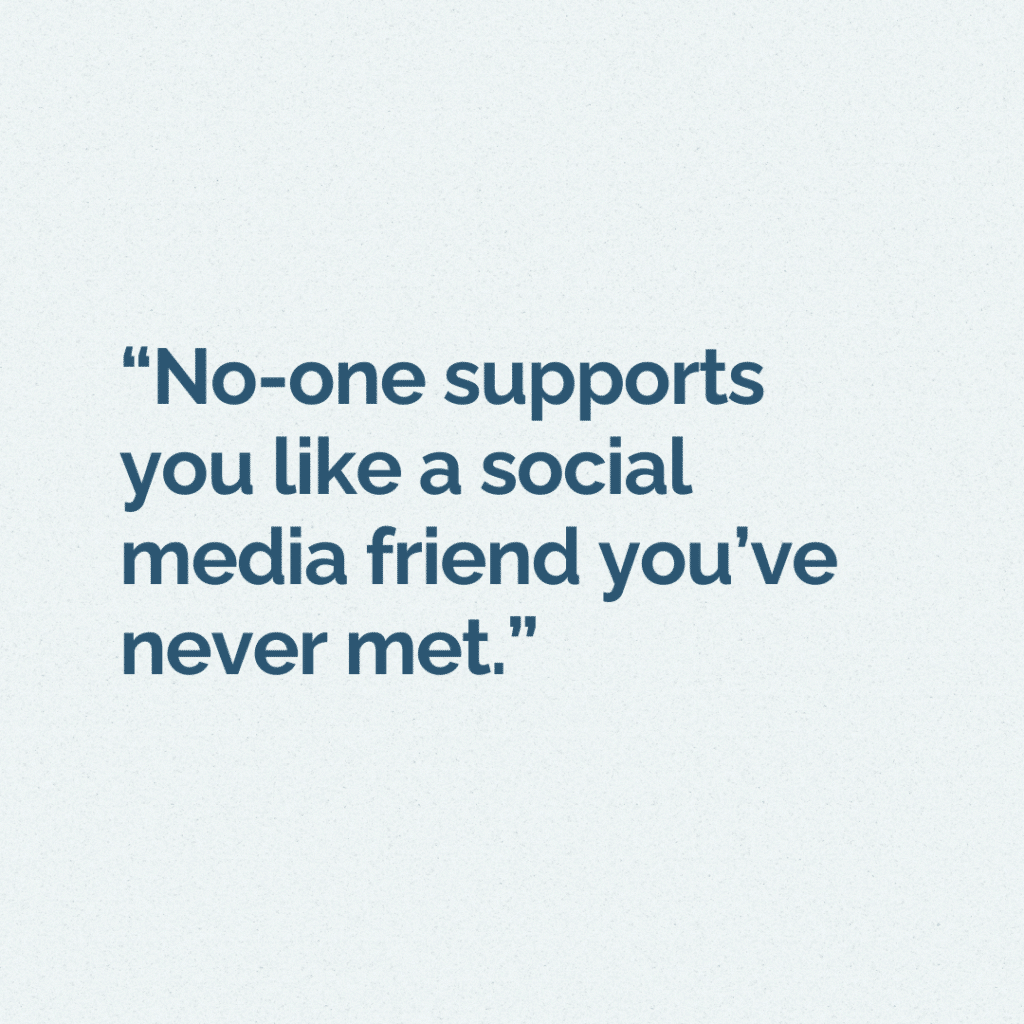
15. Not everyone will like you
I still find this hard. But you’re not here to be everyone’s cup of tea and that’s ok.
16. Everything you’ve done before has value
Every job I’ve had – waitressing, call centres, checkouts, journalism – has had some input in how I work now.
And everything I’ve learned in coaching and storytelling has helped me run my holiday cottage business too.
Don’t dismiss the skills you already have when you start something new.
17. Let go of things that aren’t serving you
After the loss of a close friend in 2023, I couldn’t face being online other than in my membership Facebook group where people knew how I was feeling and I felt safe.
I’d run my free Facebook group for years and had poured so much into it – but I didn’t have it in me to do it anymore.
I felt so guilty about it but I had to shut it down, and that was the right thing to do.
18. Spend your money wisely
This is definitely do as I say and not as I do, but I have got better with this.
A £7.99 book can sometimes teach you more than a £7,000 course.
Different types of support work at different times and working with big internet gurus doesn’t mean you are guaranteed the same success as them.
Nor does it mean you’re working directly with the person who is the face of the programme, often they have a team of coaches.
From my experience of being in big programmes the person with their name on it will know very little if anything at all about you and your business.
You might need a big membership when you start, and something smaller and more personalised as you move forward in your business, or 1-1.
Think about what you need right now.
19. You decide what ‘enough’ means for you
Not everyone wants a team or six-figure launches.
That doesn’t mean you’re doing it wrong.
If you’ve built something that supports you, makes you happy, and gives you time for your friends, family and animals – that’s enough.
If any of this has resonated with you or there are lessons you’ve learned, do come and connect with me on social media.
Follow me on Instagram: https://www.instagram.com/rachelspenceruk/
Connect on Facebook: https://www.facebook.com/rachelspenceruk
And on LinkedIn: https://www.linkedin.com/in/rachelspenceruk/
And if you’d like to work together, come and join my Pets Get Visible membership, where we focus on confidence, clarity and visibility.
Or if you’re looking for more personalised support, head to my coaching page to find out more about working together 1-1.
Further reading
Is my Pets Get Visible membership right for you?
15 lessons from 15 years running a business
The rollercoaster of running a pet business
How to find the right pet business membership
How to find the right pet business coach
Why I trained as an accredited coach and what that means for your pet business

